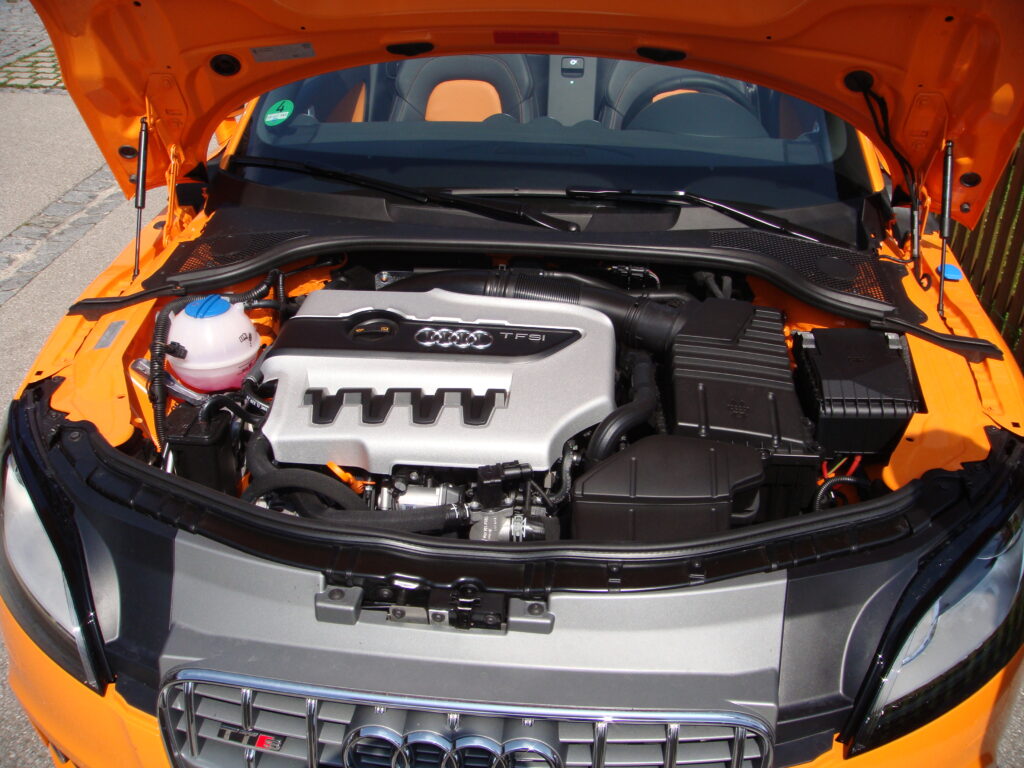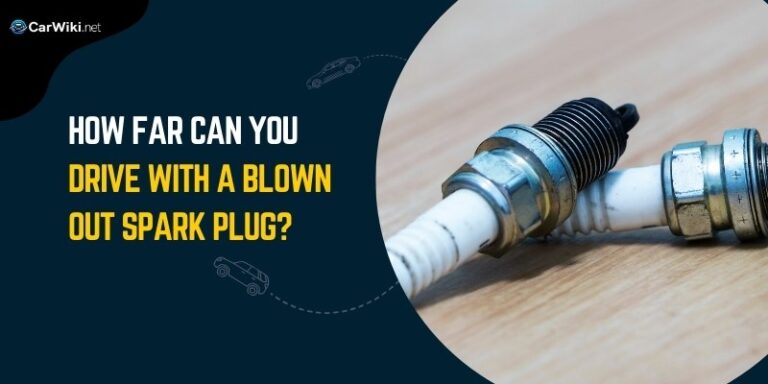Audi TT MK2 (8J) 1.8 TFSI and 2.0 TFSI Engine Problems

Uncover the key Audi MK2 (8J) 1.8 TFSI and 2.0 TFSI problems in our comprehensive exploration of this iconic model’s challenges.
The Audi TT MK2 (8J), a marvel of German engineering, boasts a blend of style and performance.
Revered by car enthusiasts, it’s a popular choice for its sleek design and dynamic driving experience. Many actually prefer the TT MK2 over the newer TT MK3, in terms of styling and how it drives.
However, like any vehicle, it’s not without its issues, particularly regarding its 1.8 TFSI and 2.0 TFSI engines.
This article delves into these problems, providing a valuable resource for potential buyers and Audi aficionados.
The 1.8 TFSI Engine: Common Issues

Oil Consumption
One of the most reported issues with the 1.8 TFSI engine is excessive oil consumption.
This problem often stems from faulty piston rings or valve seals, leading to oil leaking into the combustion chamber.
Timing Chain Tensioner Failure
The timing chain tensioner in the 1.8 TFSI is prone to failure. This can lead to a loose timing chain, potentially causing severe engine damage if not addressed promptly.
Turbocharger Failures
Turbocharger issues are not uncommon in the 1.8 TFSI. Symptoms include loss of power and increased exhaust smoke. Causes range from wear and tear to oil feed line blockages.
The 2.0 TFSI Engine Problems

High-Pressure Fuel Pump Failure
The 2.0 TFSI engine has reported failures in its high-pressure fuel pump, impacting engine performance and fuel efficiency.
Carbon Build-Up
Direct injection in the 2.0 TFSI leads to carbon build-up on intake valves, reducing airflow, power, and causing rough idling.
Water Pump and Thermostat Issues
Leaks and failures in these components can cause overheating and potential engine damage.
Significant Oil Consumption
A critical issue with the 2.0 TFSI engine is its excessive oil consumption.
This problem, often more pronounced than in the 1.8 TFSI, can lead to oil levels dropping rapidly between changes.
Possible causes include faulty piston rings and valve seals, similar to the 1.8 TFSI, but occurring more frequently and severely in the 2.0 TFSI.
Preventive Measures and Maintenance Tips
Regular maintenance is key to mitigating these issues. Frequent oil changes, using high-quality oil, and ensuring timely service checks can prolong engine life.
Additionally, being attentive to early signs of trouble, like unusual noises or performance drops, is crucial for early diagnosis and repair.
Related: Porsche Cayman Alternatives
Audi TT MK2 Engine Problems: Final Words
With the 1.8 TFSI and 2.0 TFSI engine’s oil consumption issues, along with all the other problems, it’s clear that owning an Audi TT MK2 (8J) requires a keen awareness of its engine health, as well as preventive maintenance.
Regular checks, immediate attention to any signs of oil loss, and thorough maintenance are crucial for preserving the engine’s integrity.
Grasping and tackling these issues allows enthusiasts and potential owners to truly value the exceptional combination of performance and elegance in the Audi TT MK2 (8J).
While Audi TTs are not really GT cars, they combine the perfect amount of sportiness, luxury, and style that they can in fact become great grand touring cars. So you should keep this on your shortlist if you’re thinking of buying something sporty and a bit on the practical side.
Audi TT MK2 (8J) Problems & Reliability – FAQ
How reliable is the Audi TT MK2 (8J)?
The Audi TT MK2 (8J) generally has a reputation for being a reliable sports car.
However, like any vehicle, its reliability largely depends on how well it has been maintained.
Regular service and addressing known issues, like those in the 1.8 TFSI and 2.0 TFSI engines, are crucial for maintaining its reliability.
What are the most common issues with the Audi TT MK2 (8J)?
The most common issues include excessive oil consumption (especially in the 2.0 TFSI engine), timing chain tensioner failures in the 1.8 TFSI, turbocharger problems, high-pressure fuel pump failures, carbon build-up, and water pump and thermostat issues.
Is the Audi TT MK2 (8J) expensive to maintain?
Maintenance costs for the Audi TT MK2 (8J) can be higher than average, particularly if it requires repairs for some of the common engine problems.
Regular maintenance and early detection of issues can help reduce these costs.
Is it a good idea to buy a used Audi TT MK2 (8J)?
Buying a used Audi TT MK2 (8J) can be a good choice, especially for enthusiasts.
However, it’s crucial to check the vehicle’s history, ensure it has been well-maintained, and be prepared for potential maintenance and repair costs.
What should I check for when buying a used Audi TT MK2 (8J)?
Key things to check include the engine’s condition (especially for oil consumption and turbocharger health), maintenance history, signs of timing chain tensioner issues, and the overall condition of the car, including its interior and electronics.
Are there specific model years of the Audi TT MK2 (8J) that are more reliable?
Later model years tend to have some improvements and fixes for earlier issues.
It’s advisable to research specific model years to see if there were any significant changes or recalls.
Can aftermarket modifications improve the reliability of the Audi TT MK2 (8J)?
Some aftermarket modifications can improve reliability, especially those addressing known issues.
However, it’s important to ensure that any modifications are done professionally and don’t adversely affect other aspects of the car.
How does the Audi TT MK2 (8J) compare to its competitors in terms of reliability?
The Audi TT MK2 (8J) is comparable in reliability to its competitors in the sports car segment.
It holds its own against rivals, though some competitors may have lower maintenance costs or fewer known issues.





